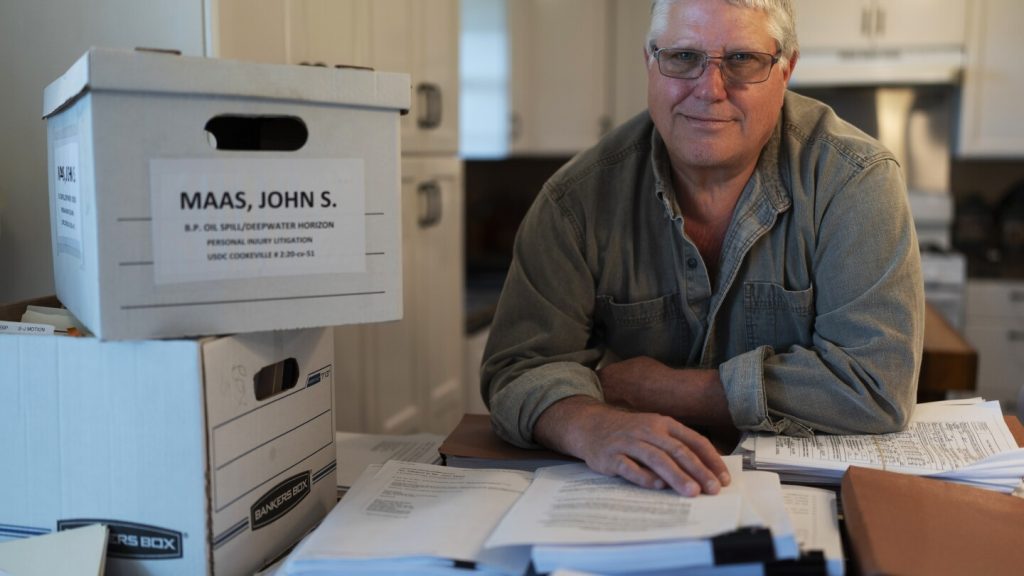In 2010, John Maas had plans to take customers fishing in the Gulf of Mexico on his newly outfitted boat, the Superskiff 1. However, his plans were put on hold when the BP Deepwater Horizon drilling rig disaster occurred, killing 11 people and releasing millions of gallons of oil into the sea. Maas, like many others along the Gulf coast, had to shift his focus from fishing to cleaning up the spill. Working in harsh conditions with oil-contaminated water and chemical dispersants, Maas eventually developed chemically induced asthma, affecting his health significantly.
After years of litigation following the BP oil spill, Maas found himself in a rare position of being able to receive a settlement for his injuries through an individual lawsuit. Despite the billions of dollars BP spent on settlements, thousands of similar cases were thrown out without ever reaching a jury. Maas’s journey to receive compensation highlights the challenges faced by workers who claim to have been sickened by the spill. Through perseverance and determination, Maas navigated through multiple law firms and even represented himself for months before finally securing a settlement.
Maas’s case against BP finally ended with a $110,000 settlement, although the company denied any liability for his illness. The settlement was a bittersweet victory for Maas, who knows that his health has been irreversibly impacted by the spill. Despite the long road to reaching a settlement, thousands of other workers who were affected by the spill have not received the same level of compensation or support. The story of John Maas sheds light on the ongoing challenges faced by those who were involved in cleaning up the BP oil spill.
Throughout his legal battle, Maas faced numerous challenges, including difficulties with law firms and the need to represent himself for a period of time. Despite these obstacles, he ultimately succeeded in securing a settlement with the help of a Tennessee attorney. The case hinged on expert testimony and the judgment of a federal judge who provided a more favorable view on the connection between toxic chemical exposure and illness. This allowed Maas to move forward with his case and eventually reach a settlement with BP.
While BP never admitted wrongdoing in Maas’s case, the settlement served as a rare victory for a worker impacted by the spill. Maas’s attorney has since been approached by many other spill workers seeking legal support, but he remains skeptical of the winnability of their cases. Despite the challenges faced by spill workers in seeking compensation, Maas’s case serves as a beacon of hope for those fighting for justice. As the legal battles continue, the legacy of the BP oil spill and its impact on workers’ health remains an ongoing issue in the Gulf of Mexico.


